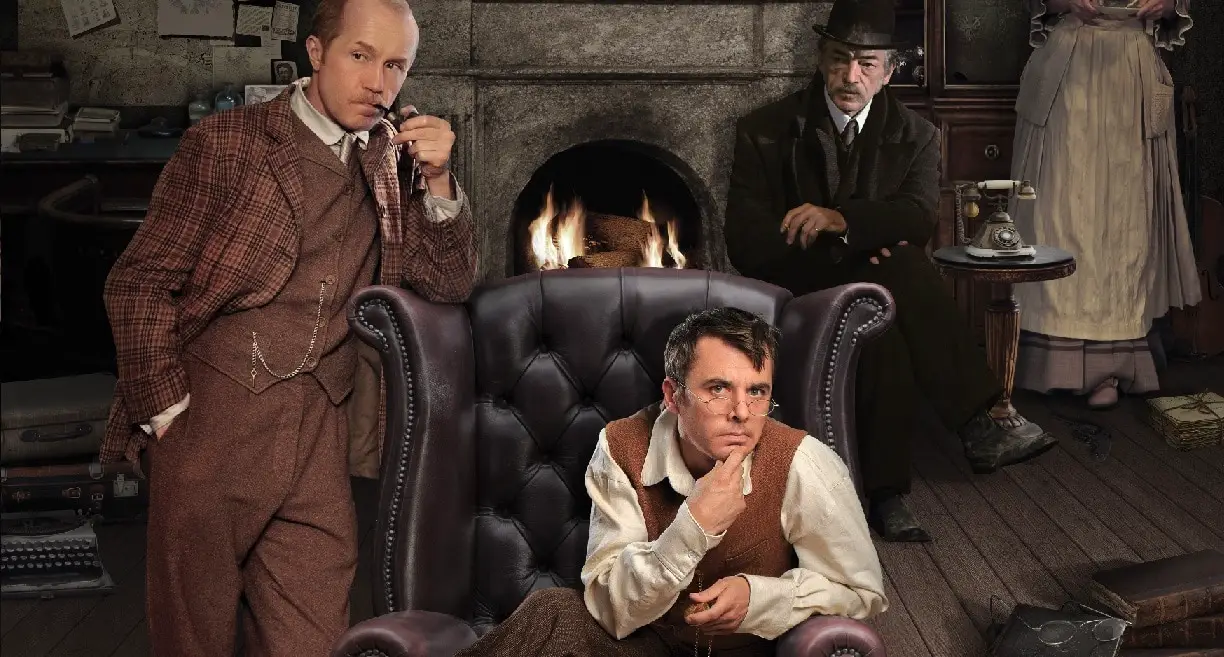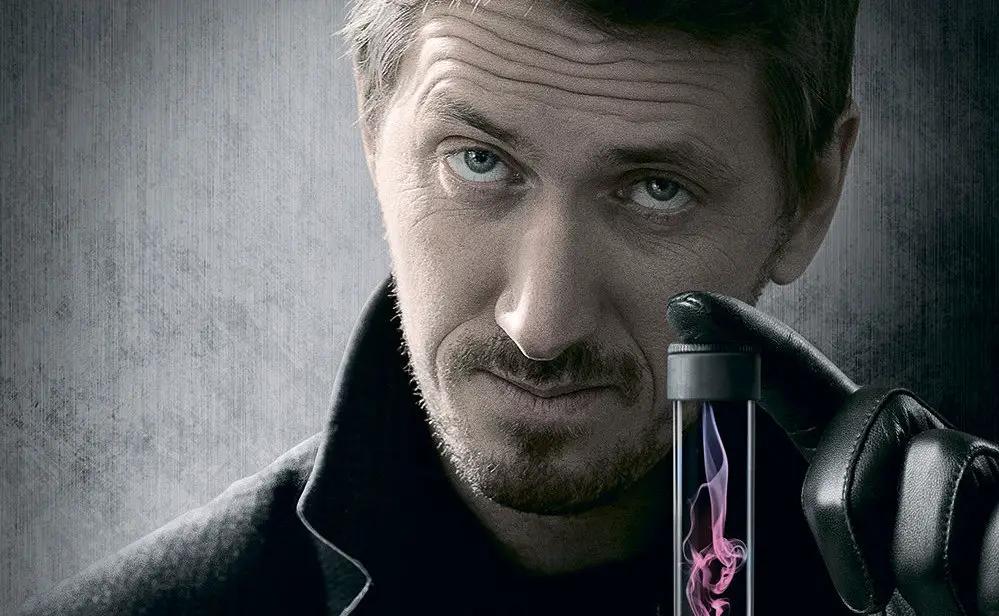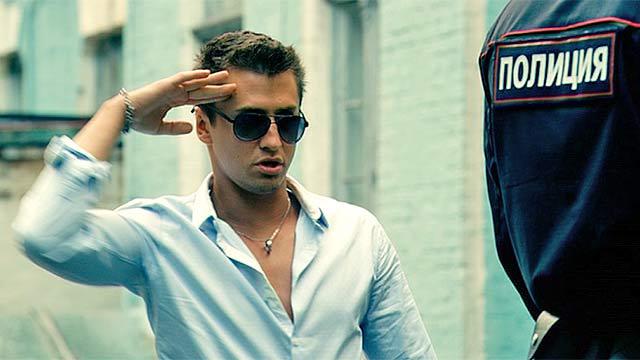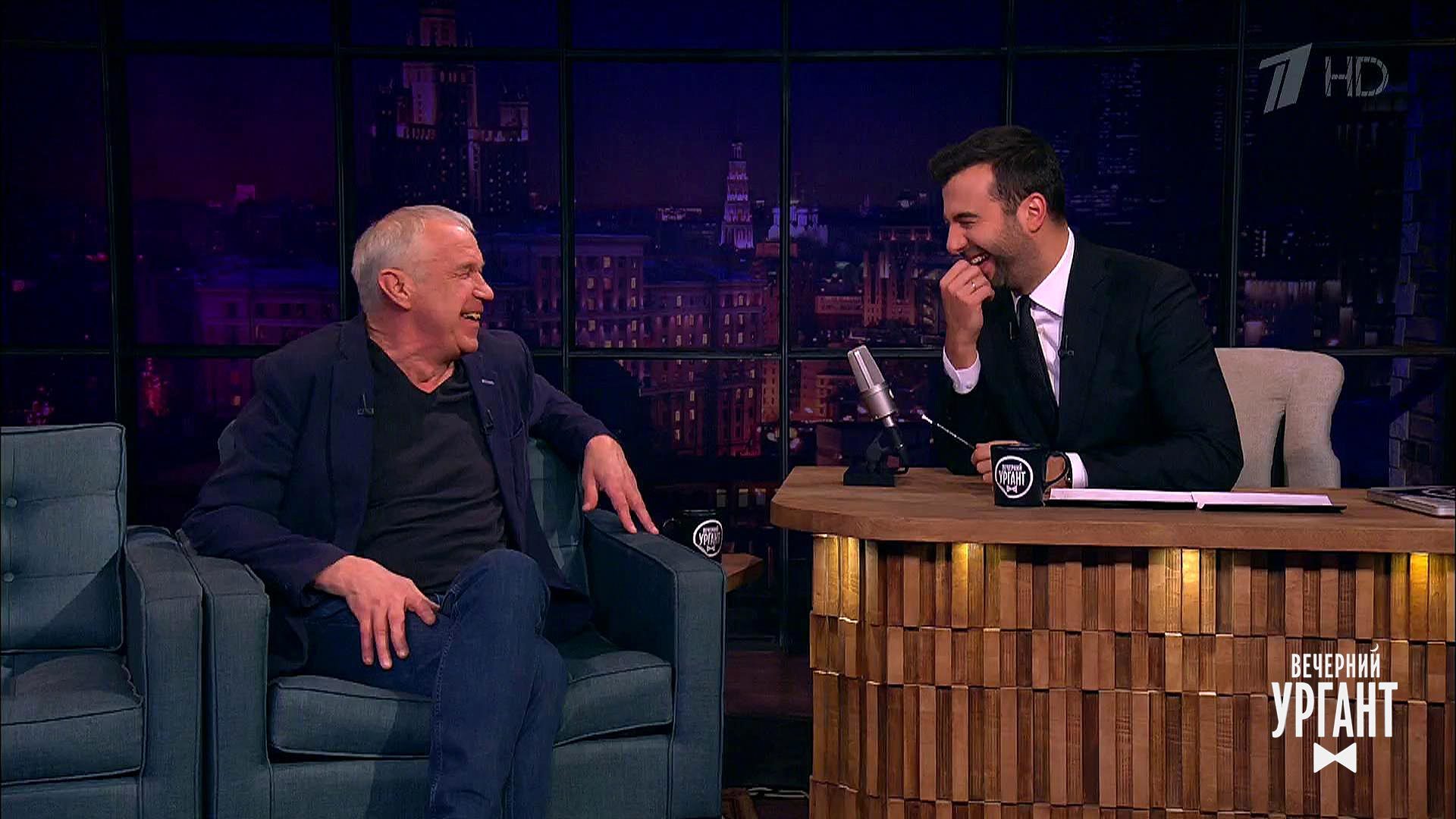During a resurgence in popularity of the British detective stories, Russia offered an early contribution in the worldwide revival of Arthur Conan Doyle’s Sherlock Holmes and Dr. Watson with their own adaptation, a television series titled Sherlock Holmes (ШерлокХолмс). Aired in November 2013, this eight-episode series was directed by Andrey Kavun, and featured Igor Petrenko as Sherlock Holmes and Andrey Panin as Dr. John Watson.
The series was first announced in 2009, but difficulties with beginning production delayed any progress with the creation of the show until 2011. The series was aired on Russia 1, the second most-watched television channel in Russia. It was produced and distributed by Central Partnership, the largest television and film distributor in Russia.
Below, you will find the series premier, a synopsis of the first episode and a brief analysis of the series and its critical reception.
Watch the series premier on YouTube (no subtitles, Russian only):
https://www.youtube.com/watch?v=tkRzaPiES4s
Synopsis
The series premier, titled “Baker-Street, 221B” (Russ. «Бейкер-стрит, 221Б»; the famous address of Sherlock Holmes’ residence), draws on Arthur Conan Doyle’s A Study in Scarlet, the author’s first novel which focuses on Sherlock Holmes and Dr. Watson. The novel establishes Dr. Watson as the narrator and defines the writings as the “Reminiscences of John H. Watson,” implying that the stories are factual rather than fictional. The television series premier uses this as a model for its introduction, beginning with Dr. Watson, who is shown sitting at a desk, smoking and writing. He begins narrating with “The journal of John Hamish Watson, late of the Army Medical Department,” a title almost identical to that of the novel. Watson continues his narration by giving a brief history of his life, discussing his education and experiences in the British army in Afghanistan. From here, the episode diverges from the plot of A Story in Scarlet and follows a storyline created by the show’s writers.
Dr. Watson immediately goes to a government office to obtain the necessary permits to open his medical practice, but fails to obtain them because he has yet to find an apartment in the city. He leaves and becomes distracted when a lady calls out for a doctor to help the victim of an apparent robbery. Upon arriving at the scene, Watson encounters Sherlock Holmes, who has already begun investigating. To Watson’s surprise, Holmes seems to know many details about him, despite having never met each other. After a discussion with the police officers at the scene, Holmes asks Watson to accompany them to the police station.
At the station, Holmes asks Watson to write a specific description in his witness report. At first, Watson refuses and tells Holmes that this description is false. An argument between Holmes and the constable immediately follows, during which Holmes explains that the man arrested could not be the real criminal, because the real criminal is a man he has been investigating for some time. Impressed by Holmes, Watson chooses to write the description that Holmes requested, which leads to the innocent man being freed and allows an investigation for the true criminal to continue. Holmes follows Watson out of the police station and offers him an apartment in the building where he lives.
From here, Watson follows a suspicious man that seems to have broken into one of the neighboring apartments. The man had gone to a bar, from which Holmes gets dragged out by a group of thugs. Watson fights off the thugs, which forces the duo to flee. Upon arriving back at Baker Street, the duo is finally able to have a more formal introduction to each other over some glasses of liquor, during which they talk about themselves, discuss the details of Sherlock’s investigation, and even have a boxing lesson. With a bond of camaraderie firmly established, the season premier ends with Holmes and Watson setting out to uncover the truth about the crime.
Analysis
Critically, this series had to compete with the Soviet classic television series The Adventures of Sherlock Holmes and Dr. Watson. This series was adored both at home and abroad for its brilliant acting and faithfulness to the original novels. Thus, most Russian viewers approached the series with extremely high hopes. The series won an award for best production designer and was nominated for 4 other awards. However, as often happens, high expectation resulted in mixed audience reviews from those that were alternatively impressed or disappointed.
Perhaps knowing the danger of this, the production company chose a director, Andrey Kavun, who had recently worked on the first Russia show to be nominated for an Emmy International Award (for Cadets, about a group of Soviet officer cadets destined to be sent to Stalingrad in WWII).
Actors who had already proven themselves were also chosen. Igor Petrenko, who plays Holmes, had previously received the State Prize of the Russian Federation in acting, and had been involved in Kavun’s Cadets. His performance as Holmes, however, met with mixed reviews as discussed below.
Andrey Panin, cast as Dr. Watson, was famous for his performance in the popular detective show Kamenskaya. Indeed, some of the greatest praise for this series comes from Panin’s performance. Unfortunately, Panin died shortly before the show’s production was finished, but the show was able to be completed with leftover stage audio and the help of a voice actor.
Audience reviews are mixed. On IMDb, the average user rating was just 6.3/10. On the Russian site KinoPoisk, only 64% of user reviews were positive, while the cited reviews of professional Russian critics were 50% positive, 50% negative. On KinoKrad, the series had an overall rating of 8.4/10, however, the rating system and reviews are much simpler than the other two sites. Many of the reviewers agree that there are plenty of redeeming qualities about the series. Almost all reviewers praised Panin for his work as Dr. Watson, but the character of Sherlock Holmes drew many criticisms. Many were critical not only of Petrenko’s acting, but also the directorial decision to portray Sherlock Holmes as a twitchy and neurotic man, with many claiming that Sherlock seemed to not even be a main character at points.










